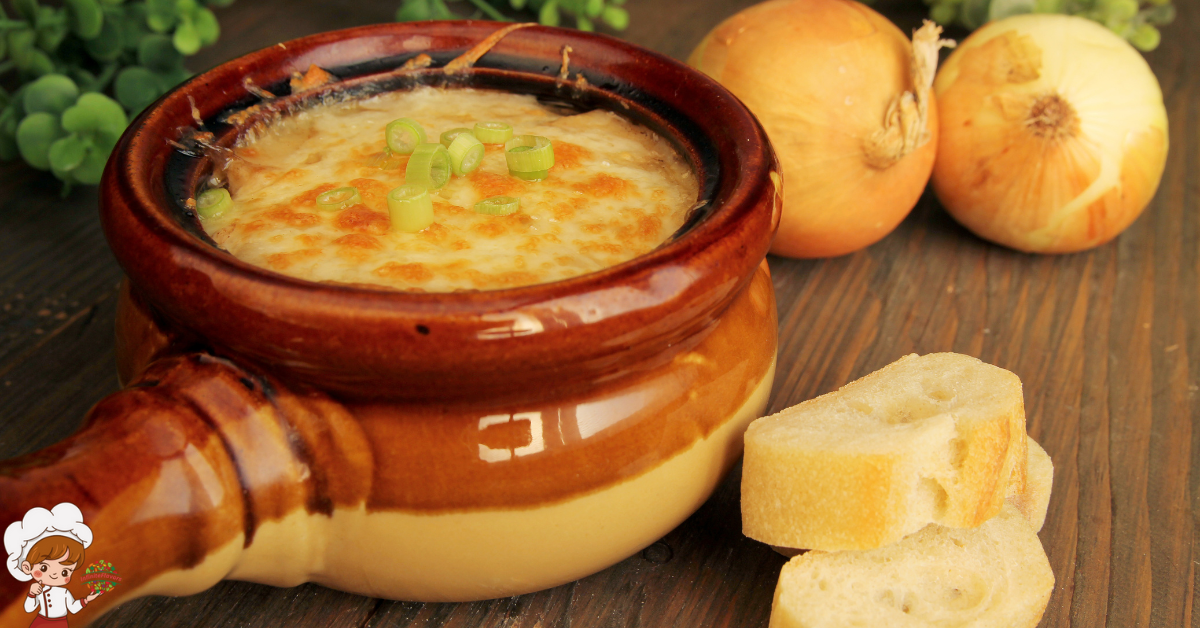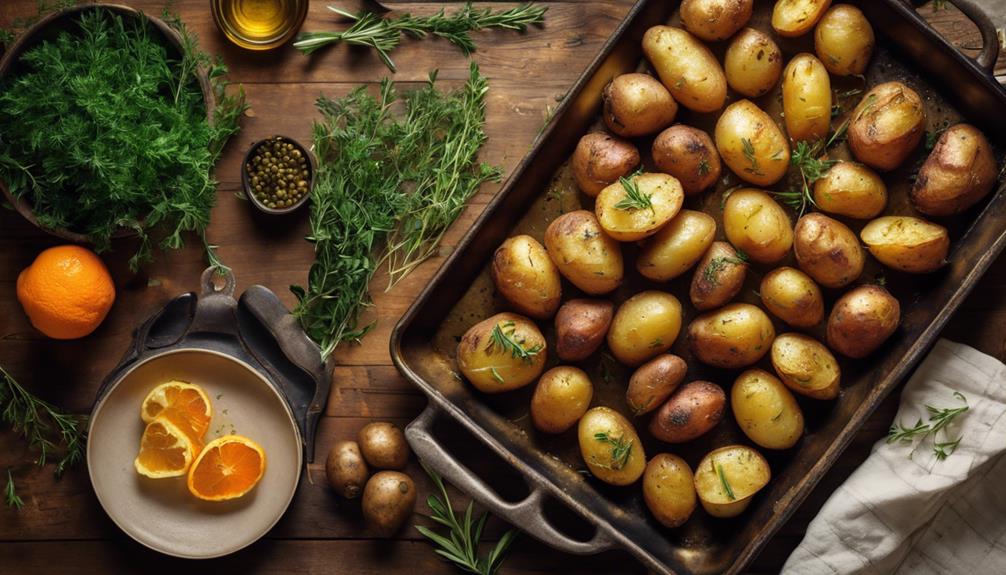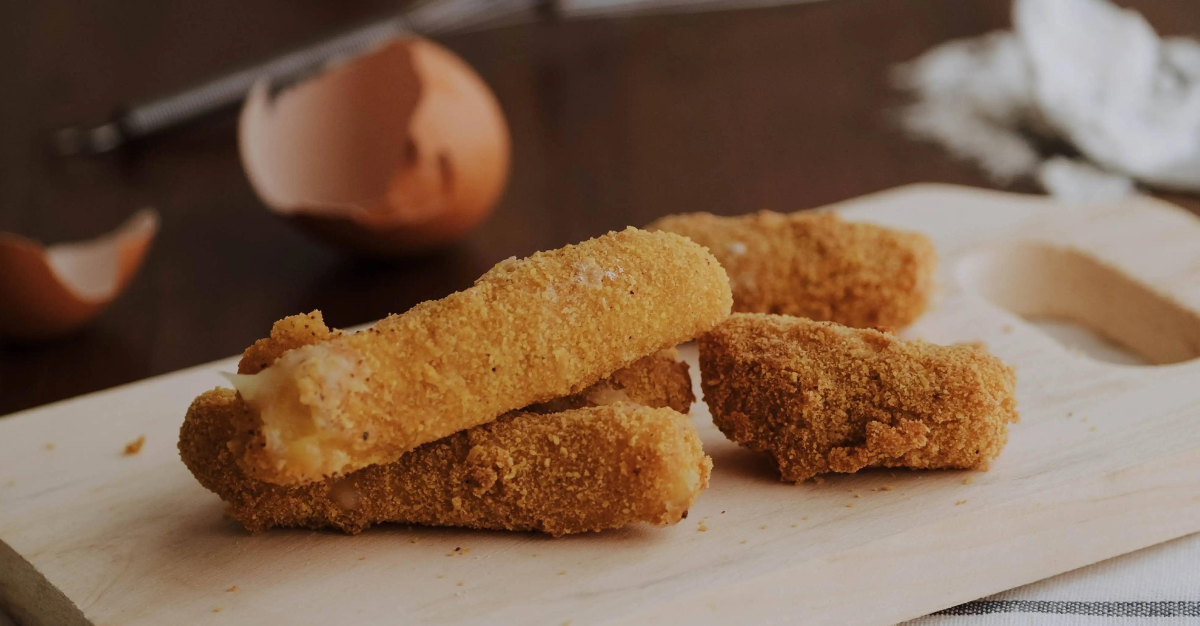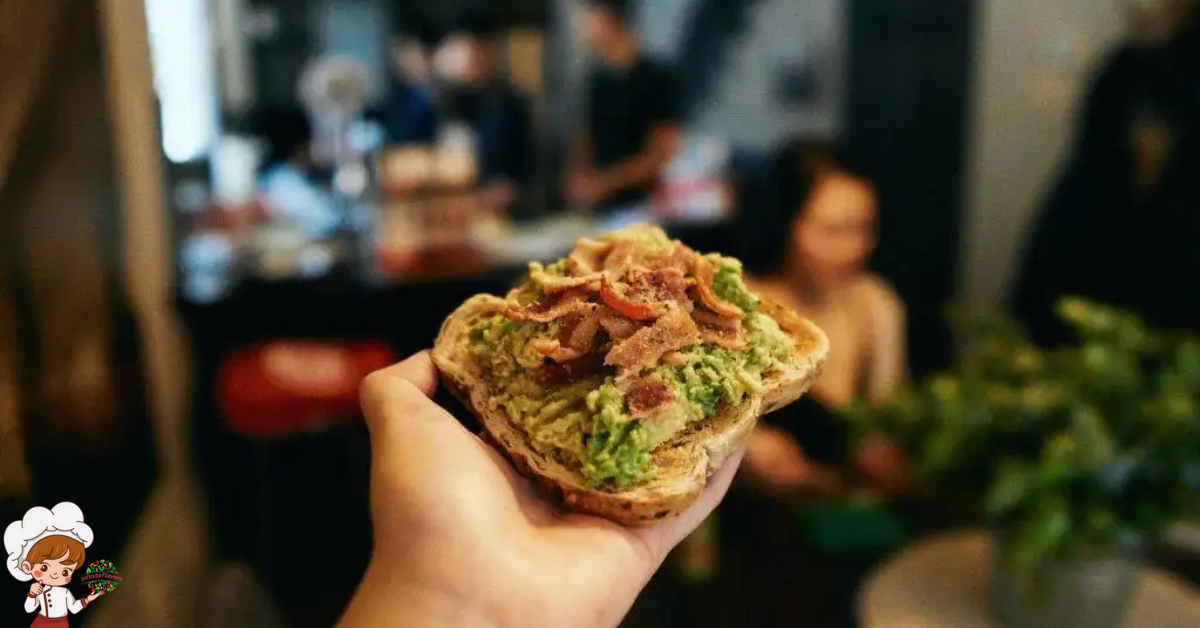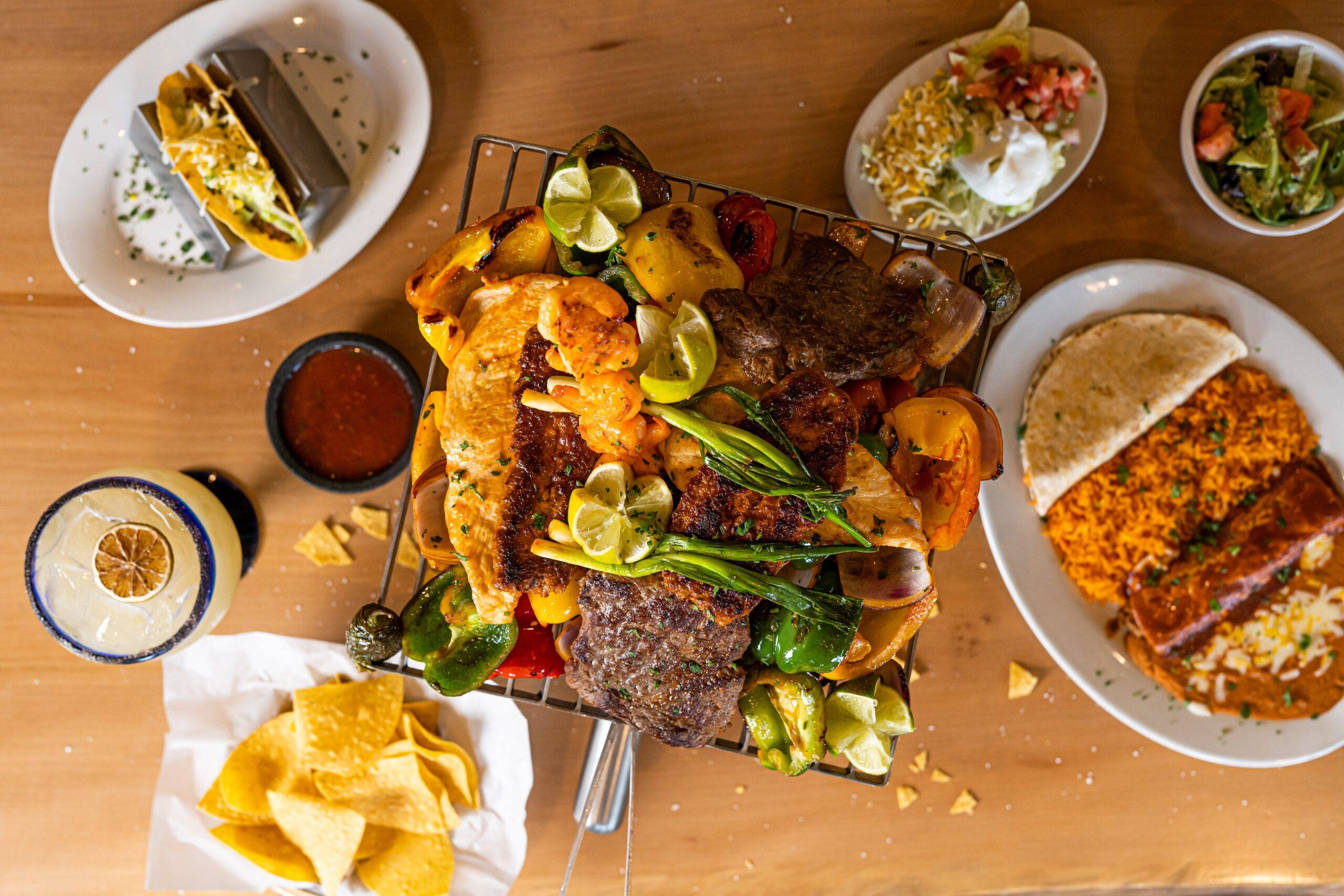How To: Planning a Healthy Vegan Diet
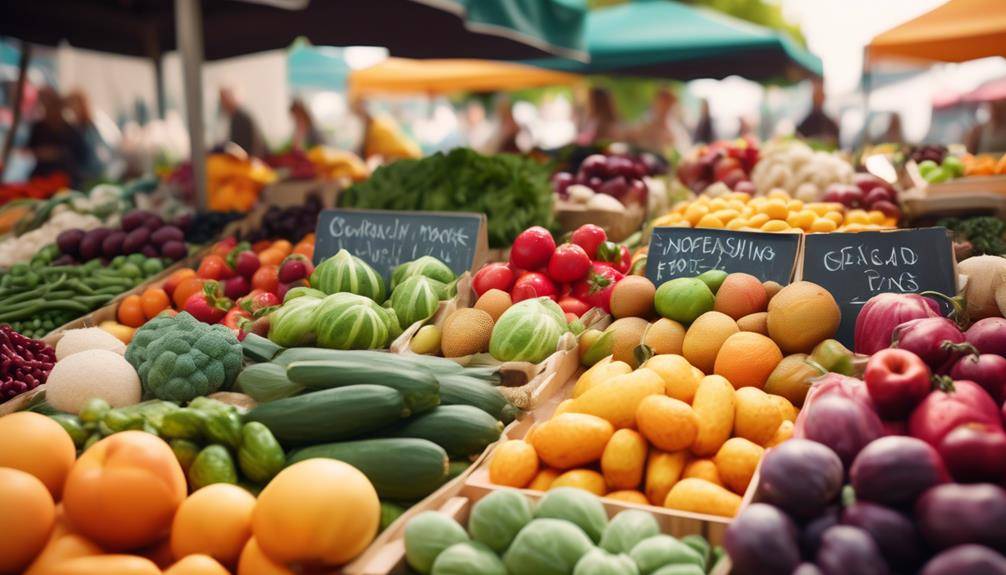
Planning a Healthy Vegan Diet; Are you looking to adopt a healthy vegan diet but not sure where to start? With so much information out there, it can be overwhelming to navigate the world of plant-based nutrition. However, fear not! In this discussion, we will provide you with practical tips and expert advice on how to Planning a Healthy Vegan Diet that meets all your nutritional needs. From ensuring you get essential nutrients to discovering delicious plant-based protein sources, we’ve got you covered. So, let’s dive in and explore the wonderful world of vegan nutrition together.
Benefits of a Vegan Diet
Eating a vegan diet can offer numerous benefits for your health and well-being. Adopting a vegan lifestyle means eliminating all animal products from your diet, including meat, dairy, eggs, and honey. By doing so, you may experience a wide range of positive changes in your body and mind.
One of the most significant benefits of a vegan diet is improved heart health. Research has consistently shown that individuals who follow a plant-based diet have lower levels of cholesterol and blood pressure, reducing their risk of heart disease and stroke. Additionally, a vegan diet is typically low in saturated fat, which is commonly found in animal products and has been linked to heart problems.
Furthermore, a vegan diet can help you maintain a healthy weight. Plant-based foods are generally lower in calories and higher in fiber compared to animal products. This combination promotes feelings of fullness and satiety, making it easier to manage your weight. Studies have also indicated that vegans tend to have a lower body mass index (BMI) and lower rates of obesity compared to non-vegans.
In addition to heart health and weight management, a vegan diet can provide you with a wide range of essential nutrients. Contrary to popular belief, it is entirely possible to meet your nutritional needs on a vegan diet. Plant-based foods such as fruits, vegetables, whole grains, legumes, nuts, and seeds are rich in vitamins, minerals, and antioxidants that support optimal health. However, it is crucial to ensure you are consuming a variety of foods to obtain all the necessary nutrients.
Essential Nutrients for Vegans
To maintain a healthy vegan diet, it’s important to ensure that you’re getting enough protein from sources such as legumes, tofu, tempeh, and quinoa. Since vitamin B12 is primarily found in animal products, it’s crucial for vegans to consider supplementation or fortified foods to meet their needs. Additionally, plant-based iron sources like leafy greens, lentils, and fortified cereals can help vegans meet their iron requirements.
Protein Sources for Vegans
When following a healthy vegan diet, it is essential to ensure an adequate intake of protein from a variety of plant-based sources. Protein is crucial for building and repairing tissues, producing enzymes and hormones, and supporting a healthy immune system. While animal products are well-known for their protein content, there are plenty of plant-based options that can provide you with the protein your body needs.
One excellent way to incorporate protein into your diet is by enjoying protein-rich smoothies. These can be made with ingredients such as almond milk, tofu, nut butter, and protein powder. Additionally, high-fiber grains like quinoa, brown rice, and oats are great sources of protein for vegans. By including a diverse range of plant-based protein sources in your diet, you can meet your protein needs and maintain a healthy vegan lifestyle.
Vitamin B12 Supplementation
One essential nutrient for vegans to consider supplementing is Vitamin B12, as it is primarily found in animal-based foods and can be challenging to obtain from plant-based sources alone. Vitamin B12 plays a crucial role in the body, particularly in the production of red blood cells and the health of the nervous system. Without adequate B12 intake, vegans may be at risk of developing a deficiency, which can lead to fatigue, weakness, and neurological problems. To ensure sufficient B12 levels, vegans should consider the following supplementation options:
- Sublingual B12 tablets: These dissolvable tablets are placed under the tongue for quick absorption.
- B12-fortified foods: Look for plant-based products, such as plant milk and breakfast cereals, that are fortified with B12.
- B12 injections: In severe cases of deficiency, injections may be necessary under the guidance of a healthcare professional.
- B12 supplements: Oral supplements are widely available and can help meet daily requirements.
Plant-Based Iron Sources
Vegans also need to consider plant-based iron sources to ensure they meet their nutritional needs. Iron is an essential mineral that plays a crucial role in the formation of red blood cells and the transportation of oxygen throughout the body. While iron is commonly associated with animal products, there are plenty of plant-based sources that can provide an adequate amount of this nutrient.
To optimize iron absorption, it is important to consume iron-rich foods alongside vitamin C-rich foods. This combination helps enhance iron absorption in the body. Some excellent plant-based sources of iron include legumes, such as lentils and chickpeas, tofu, tempeh, quinoa, spinach, and fortified plant-based milk alternatives.
In certain cases, vegan iron supplements may be necessary, especially for individuals who have difficulty meeting their iron needs through diet alone. However, it is always recommended to consult with a healthcare professional before starting any supplementation.
Plant-Based Protein Sources
When following a vegan diet, it is important to ensure you are getting enough protein. Luckily, there are many plant-based protein sources available to you. Some examples of protein-rich plant foods include legumes, such as beans and lentils, tofu, tempeh, quinoa, and nuts and seeds. By incorporating a variety of these foods into your meals, you can easily meet your protein needs. Additionally, combining different plant-based protein sources can help create complete protein combinations, providing all the essential amino acids your body needs.
Protein-Rich Plant Foods
To ensure a well-rounded and protein-rich vegan diet, incorporating a variety of plant-based protein sources is essential. Here are four protein-rich plant foods that can be easily incorporated into your vegan meals:
- Legumes: Beans, lentils, and chickpeas are excellent sources of protein. They are also high in fiber, which aids in digestion and promotes satiety.
- Nuts and seeds: Almonds, walnuts, chia seeds, and hemp seeds are all great sources of protein. They also provide healthy fats and essential nutrients.
- Tofu and tempeh: These soy-based products are versatile and can be used in various dishes. They are complete protein sources and can be a great addition to your meals.
- Whole grains: Incorporating whole grains like quinoa, brown rice, and oats into your diet not only provides protein but also adds important vitamins, minerals, and fiber.
Complete Protein Combinations
Incorporating a variety of plant-based protein sources, such as legumes, nuts, seeds, tofu, tempeh, and whole grains, is essential for ensuring a well-rounded and protein-rich vegan diet. While each of these foods contains protein, some may not provide all the essential amino acids that the body needs. This is where protein combining comes into play. By combining different plant-based protein sources throughout the day, you can ensure that you are getting all the essential amino acids.
For example, you can pair legumes with whole grains or nuts and seeds to create complete protein combinations. Additionally, tofu and tempeh are considered complete protein sources on their own. By being mindful of the protein sources you consume and incorporating a variety of plant-based foods, you can easily meet your protein needs on a vegan diet.
Incorporating Whole Grains
One key component of a healthy vegan diet is the inclusion of whole grains. Whole grains are an excellent source of nutrients and provide numerous health benefits. Here are some reasons why you should incorporate whole grains into your diet:
- Nutrient-rich: Whole grains are packed with essential nutrients such as fiber, vitamins, minerals, and antioxidants. They provide a wide range of nutrients that are important for overall health and well-being.
- Heart health: Consuming whole grains has been linked to a reduced risk of heart disease. They contain fiber, which helps lower cholesterol levels and maintain healthy blood pressure. Whole grains also have anti-inflammatory properties that promote cardiovascular health.
- Weight management: Whole grains are a great addition to a weight management plan. They are filling and can help you feel satisfied for longer periods, reducing the temptation to overeat. Additionally, the fiber in whole grains aids in digestion and promotes healthy bowel movements.
- Blood sugar control: Whole grains have a lower glycemic index compared to refined grains. This means they are digested more slowly, resulting in a steadier release of glucose into the bloodstream. This can help regulate blood sugar levels, making whole grains a suitable choice for individuals with diabetes or those looking to prevent it.
Incorporating whole grains into your vegan diet is easy and delicious. You can try recipes such as whole grain bread, quinoa salad, brown rice stir-fry, or oatmeal with fruits and nuts. These recipes not only provide the health benefits of whole grains but also add variety and flavor to your meals.
Importance of Fruits and Vegetables
Now let’s shift our focus to the importance of including fruits and vegetables in your healthy vegan diet. Fruits and vegetables are essential components of a well-balanced vegan diet, providing numerous benefits for your overall health and well-being. These nutrient-rich foods are packed with vitamins, minerals, fiber, and antioxidants that promote optimal health and reduce the risk of chronic diseases.
One of the main benefits of consuming fruits and vegetables is their high content of vitamins and minerals. They are excellent sources of vitamin C, vitamin A, potassium, and folate, which are vital for maintaining a strong immune system, healthy skin, and proper cell function. Additionally, the fiber found in fruits and vegetables aids in digestion, promotes satiety, and helps maintain healthy cholesterol levels.
To increase your fruit and vegetable intake, consider incorporating a variety of colorful options into your meals and snacks. Opt for whole fruits instead of juices to maximize fiber intake. Include a side of fresh vegetables with every meal, and try to consume a rainbow of different colored vegetables throughout the day. Experiment with different cooking methods, such as grilling, roasting, or stir-frying, to add variety and enhance the flavors.
Another tip for increasing fruit and vegetable consumption is to make them easily accessible. Keep a bowl of fresh fruit on your countertop or pack pre-cut vegetables for on-the-go snacking. You can also try incorporating fruits and vegetables into your favorite dishes, such as smoothies, salads, or stir-fries.
Healthy Fats for Vegans
Including healthy fats in your vegan diet is essential for overall health and well-being. While it’s true that a plant-based diet naturally provides many nutrient-dense options, it’s important to pay attention to your fat intake to ensure you’re getting the right balance. Here are some key points to consider when it comes to healthy fats for vegans:
- Plant-based omega-3s: Omega-3 fatty acids are crucial for heart health, brain function, and reducing inflammation. While fish is a common source of omega-3s, vegans can obtain these essential fatty acids from plant-based sources such as flaxseeds, chia seeds, hemp seeds, and walnuts. These foods are high in alpha-linolenic acid (ALA), a type of omega-3 that the body converts into EPA and DHA, the active forms of omega-3s.
- Healthy oils for cooking: When it comes to cooking, using the right oils can make a significant impact on your health. Opt for oils that are high in monounsaturated fats, such as olive oil, avocado oil, and peanut oil. These oils are stable at high temperatures and provide a good balance of healthy fats. Avoid oils high in saturated fats or trans fats, as they can increase the risk of heart disease and other health issues.
- Nut butters: Nut butters, such as almond butter and peanut butter, are not only delicious but also a great source of healthy fats. They are rich in monounsaturated and polyunsaturated fats, which can help lower bad cholesterol levels and improve heart health. Be mindful of portion sizes, as nut butters are calorie-dense.
- Seeds and nuts: Incorporating a variety of seeds and nuts into your diet can offer a wide range of healthy fats. Include options like flaxseeds, chia seeds, hemp seeds, almonds, cashews, and pistachios. These foods provide a good balance of monounsaturated and polyunsaturated fats, along with other important nutrients like fiber, protein, and antioxidants.
Calcium-Rich Foods for Bone Health
Incorporating calcium-rich foods into your vegan diet is crucial for maintaining strong and healthy bones. While many people associate calcium with dairy products, there are plenty of plant-based sources that can provide you with this essential mineral. Plant-based calcium sources include leafy greens like kale, spinach, and collard greens, as well as tofu, tempeh, and fortified plant milks. These foods not only provide calcium, but they also offer other nutrients that are important for bone health, such as vitamin K, magnesium, and potassium.
When it comes to calcium absorption, it’s important to note that certain factors can enhance or inhibit it. Vitamin D is crucial for calcium absorption, so make sure you’re getting enough sunlight or consider taking a vitamin D supplement. Additionally, oxalates and phytates, found in some plant foods, can bind to calcium and hinder its absorption. However, cooking or soaking these foods can help reduce the levels of these compounds and improve calcium absorption.
To maximize the benefits of plant-based calcium sources, it’s important to incorporate them into your meals and snacks throughout the day. For example, you can add leafy greens to your smoothies, salads, or stir-fries. Tofu and tempeh can be used in stir-fries, sandwiches, or even as a topping for salads. Fortified plant milks can be enjoyed on their own or used in recipes that call for dairy milk.
Iron-Rich Foods for Energy
Looking to boost your energy levels on a vegan diet? Iron is an essential nutrient that plays a crucial role in energy production. Luckily, there are plenty of vegan sources of iron to choose from, such as legumes, tofu, spinach, and quinoa. To enhance iron absorption, pair these foods with vitamin C-rich options like citrus fruits or bell peppers.
Importance of Iron
Iron is an essential nutrient that plays a crucial role in maintaining energy levels and overall health. As a vegan, it is important to ensure you are getting an adequate amount of iron in your diet to prevent iron deficiency and support optimal iron absorption. Here are some key points to consider:
- Include plenty of iron-rich plant-based foods in your meals, such as legumes (lentils, chickpeas, beans), tofu, tempeh, quinoa, spinach, and fortified cereals.
- Pair iron-rich foods with vitamin C-rich foods (citrus fruits, berries, bell peppers) to enhance iron absorption.
- Avoid consuming calcium-rich foods (dairy alternatives, fortified plant-based milk) at the same time as iron-rich foods, as calcium can inhibit iron absorption.
- Consider supplementing with iron if you are unable to meet your iron needs through diet alone, especially if you are at a higher risk of iron deficiency (pregnant women, athletes, those with heavy menstrual bleeding).
Vegan Sources of Iron
To ensure optimal iron intake on a healthy vegan diet, it is important to incorporate a variety of plant-based foods that are rich in this essential nutrient. Iron deficiency is a concern for vegans, as plant-based sources of iron may be less readily absorbed by the body compared to animal-based sources. However, with careful planning, it is possible to meet your iron needs on a vegan diet.
Some excellent vegan sources of iron include legumes such as lentils, chickpeas, and black beans. These legumes not only provide a good amount of iron but also offer other essential nutrients like protein and fiber. Additionally, leafy green vegetables like spinach, kale, and broccoli are rich in iron.
It is worth noting that consuming vitamin C-rich foods alongside iron-rich plant foods can enhance iron absorption. Citrus fruits, strawberries, and bell peppers are excellent sources of vitamin C.
If you are concerned about meeting your iron needs solely through food, you may consider vegan iron supplements. These supplements are specifically designed to support iron levels in individuals following a vegan diet. However, it is always best to consult with a healthcare professional before starting any supplements to ensure they are appropriate for your individual needs.
Enhancing Iron Absorption
Incorporating certain foods into your diet can help enhance the absorption of iron and provide you with the energy you need. Here are some tips to increase iron absorption and maximize the benefits of iron-rich foods:
- Pair iron-rich foods with vitamin C-rich foods: Consuming vitamin C alongside plant-based sources of iron, such as beans or leafy greens, can significantly enhance iron absorption.
- Use cooking techniques that promote iron absorption: Soaking and sprouting legumes, grains, and seeds can reduce the levels of phytates and oxalates, which can inhibit iron absorption. Additionally, cooking vegetables can break down their cell walls, making the iron more accessible.
- Avoid consuming iron inhibitors: Certain compounds, like tannins found in tea and coffee, can hinder iron absorption. Try to limit consumption of these beverages during meals.
- Consider iron supplements: If you have trouble meeting your iron needs through diet alone, talk to your healthcare provider about incorporating iron supplements into your routine.
Vitamin B12 and Vegan Diets
Vitamin B12 is an essential nutrient that plays a crucial role in maintaining a healthy vegan diet. It is important for the proper functioning of your body, particularly in relation to the nervous system and the production of red blood cells. While vitamin B12 is predominantly found in animal products, it is possible for vegans to meet their B12 requirements through fortified foods or supplements.
Since vitamin B12 is primarily obtained through animal sources, vegans are at a higher risk of developing a deficiency. The main reason for this is that plant-based foods do not naturally contain vitamin B12. Additionally, the vegan diet can affect digestion and absorption of this nutrient. This is because B12 is bound to proteins in animal products and requires sufficient stomach acid and enzymes to be released and absorbed by the body. Vegans who have compromised digestion, such as those with digestive disorders or older adults with reduced stomach acid production, may have difficulty absorbing enough B12 from fortified foods alone.
Symptoms of vitamin B12 deficiency can vary and may include fatigue, weakness, numbness or tingling in the hands and feet, difficulty concentrating, and mood changes. If left untreated, a deficiency can lead to more serious complications such as nerve damage or anemia. Therefore, it is crucial for vegans to ensure they are meeting their B12 requirements through fortified foods or supplements.
To prevent deficiency, it is recommended that vegans include fortified foods such as plant-based milks, breakfast cereals, and nutritional yeast in their diet. Additionally, taking a B12 supplement or using a multivitamin that contains B12 can also be an effective way to meet your requirements. Regularly monitoring your B12 levels through blood tests is advisable to ensure you are maintaining adequate levels.
Planning Balanced Meals
Now that you understand the importance of meeting your vitamin B12 requirements on a vegan diet, let’s discuss how to plan balanced meals to ensure you are getting all the nutrients you need.
When planning balanced meals on a vegan diet, there are a few key factors to consider. Here are some tips to help you create nutritious and satisfying meals:
- Incorporate whole grains: Whole grains like quinoa, brown rice, and whole wheat pasta are excellent sources of complex carbohydrates and fiber. They provide sustained energy and help you feel full for longer periods. Make sure to include a variety of whole grains in your meals to obtain a wide range of nutrients.
- Complete protein combinations: As a vegan, it’s important to combine different plant-based protein sources to ensure you are getting all the essential amino acids. Examples of complete protein combinations include beans and rice, lentils and quinoa, or chickpeas and whole wheat bread. These combinations provide you with all the necessary amino acids your body needs.
- Include a variety of fruits and vegetables: Fruits and vegetables are rich in vitamins, minerals, and antioxidants. Aim to include a variety of colors in your meals to obtain a wide range of nutrients. Additionally, try to eat both raw and cooked vegetables to maximize nutrient intake.
- Don’t forget healthy fats: Healthy fats, such as avocados, nuts, and seeds, are an essential part of a balanced vegan diet. They provide important nutrients like omega-3 fatty acids and vitamin E. Incorporate these fats into your meals by adding avocado slices to salads or including a handful of nuts and seeds as a snack.
Snack Ideas for Vegans
Looking for quick and easy snack options that are nutrient-rich and vegan? You’re in luck! There are plenty of homemade vegan treats that can satisfy your cravings while providing your body with essential nutrients. Let’s explore some delicious and healthy snack ideas for vegans.
Quick and Easy
For those following a vegan diet, finding quick and easy snack ideas that are both nutritious and satisfying can be a simple and enjoyable task. Incorporating these quick meal ideas and time-saving recipes into your daily routine will ensure you have delicious snacks ready in no time.
Here are four ideas to consider:
- Hummus and Veggie Sticks: Dip crunchy carrot, cucumber, and bell pepper slices into creamy hummus for a healthy and satisfying snack.
- Fruit and Nut Butter: Spread almond or peanut butter on apple or banana slices for a sweet and protein-packed treat.
- Avocado Toast: Mash ripe avocado onto whole grain bread and top with a sprinkle of sea salt and red pepper flakes for a quick and filling snack.
- Energy Balls: Combine dates, nuts, and your favorite add-ins like cocoa powder or shredded coconut in a food processor, then roll into bite-sized balls for an energy-packed snack on the go.
These snack ideas are not only quick and easy to make but also provide a variety of nutrients to keep you energized throughout the day.
Nutrient-rich Options
Consider incorporating nutrient-rich snack options into your vegan diet for a delicious and wholesome way to stay nourished throughout the day. Snacks can be an important part of your daily meals, providing you with the energy and nutrients you need to fuel your body. When choosing snacks, opt for nutrient-dense recipes that are packed with vitamins, minerals, and antioxidants.
Some great options include raw nuts and seeds, such as almonds, walnuts, and chia seeds, which are rich in healthy fats and protein. You can also enjoy fresh fruits and vegetables, like carrots, celery, and apples, which are loaded with fiber and essential nutrients. Meal planning tips for snacks include preparing them in advance and portioning them out for easy grab-and-go options. With these nutrient-rich snack ideas, you can ensure that you are getting the nutrients your body needs while following a vegan diet.
Homemade Vegan Treats
When it comes to satisfying your sweet tooth on a vegan diet, there are plenty of homemade treats that are both delicious and cruelty-free. Vegan baking allows you to indulge in guilt-free treats that are free from animal products. Here are some snack ideas to satisfy your cravings:
- Vegan Chocolate Chip Cookies: These cookies are made with plant-based butter and dairy-free chocolate chips, resulting in a chewy and decadent treat.
- Banana Nice Cream: Blend frozen bananas with your favorite plant-based milk for a creamy and healthy alternative to traditional ice cream.
- Vegan Energy Balls: Made with dates, nuts, and seeds, these bite-sized treats are packed with nutrients and make for a convenient on-the-go snack.
- Homemade Vegan Brownies: Using ingredients like applesauce, cocoa powder, and almond flour, you can create fudgy and rich brownies without the need for eggs or dairy.
These homemade vegan treats offer the perfect combination of indulgence and health, making them a guilt-free option for satisfying your cravings.
Vegan-Friendly Substitutes
To create a well-rounded vegan diet, it is important to include vegan-friendly substitutes that provide essential nutrients and flavors typically found in animal-based products. One popular substitute for dairy cheese is vegan cheese alternatives. These alternatives are typically made from plant-based ingredients such as nuts, soy, or tapioca starch. They come in a variety of flavors and textures, ranging from creamy and mild to sharp and tangy. Some popular brands include Daiya, Follow Your Heart, and Violife. These vegan cheese alternatives not only offer a similar taste and texture to dairy cheese but also provide essential nutrients like calcium and vitamin B12.
Another important substitute to consider is plant-based milk. Plant-based milk options are made from a variety of sources such as soy, almond, oat, or coconut. These milks can be used in place of cow’s milk in recipes, smoothies, or as a standalone beverage. They offer a similar creamy texture and can be fortified with nutrients like calcium and vitamin D to ensure you are meeting your nutritional needs.
When choosing vegan-friendly substitutes, it’s important to read labels and select options that are fortified with essential nutrients. For example, some plant-based milks are fortified with calcium and vitamin D to help meet your daily requirements. Additionally, it’s important to remember that not all vegan substitutes are created equal. Some may be highly processed or contain added sugars, so it’s important to choose options that align with your dietary goals.
Incorporating vegan cheese alternatives and plant-based milk options into your diet can help you create delicious and nutritious meals that are free from animal products. These substitutes not only provide essential nutrients but also offer a wide range of flavors and textures to satisfy your taste buds. So, be sure to explore the variety of options available and find the ones that work best for you.
Tips for Eating Out as a Vegan
If you’re following a vegan diet, navigating restaurant menus can be easier than you think. While it’s true that finding vegan options can sometimes be challenging, there are several tips that can help you enjoy eating out while sticking to your plant-based lifestyle.
Here are some helpful suggestions for dining out as a vegan:
- Do your research: Before heading out to a restaurant, take a few minutes to look up their menu online. Many restaurants now offer vegan options, and some even have dedicated vegan menus. By doing your research beforehand, you can ensure that there will be suitable choices for you.
- Be vocal about your dietary needs: When you arrive at the restaurant, don’t hesitate to inform your server that you follow a vegan diet. They can provide guidance on menu items that can be modified to meet your needs or suggest suitable alternatives. Most establishments are willing to accommodate dietary restrictions, so don’t be afraid to speak up.
- Customize your order: Don’t be afraid to ask for modifications to existing dishes. For example, you can request to have cheese or mayo removed, or substitute animal-based proteins with plant-based alternatives like tofu, tempeh, or legumes. Many restaurants are more than happy to accommodate these requests.
- Seek out vegan-friendly establishments: If you frequently eat out, it may be helpful to identify vegan-friendly restaurants in your area. These establishments are more likely to have a wider range of vegan options and may even cater specifically to plant-based diets.
Staying Motivated on a Vegan Diet
As you continue to navigate restaurant menus as a vegan, staying motivated on your plant-based diet is essential for long-term success and enjoyment. It’s no secret that maintaining any type of diet can be challenging at times, but with the right mindset and support, you can stay motivated on your vegan journey.
One way to stay motivated is by reminding yourself of the reasons why you chose to go vegan in the first place. Whether it’s for ethical reasons, environmental concerns, or health benefits, keeping these motivations at the forefront of your mind can help you stay committed to your plant-based lifestyle.
Finding support is another important aspect of staying motivated on a vegan diet. Surrounding yourself with like-minded individuals, whether it’s joining online vegan communities or attending local vegan meetups, can provide a sense of camaraderie and encouragement. These communities can also be great sources of information and inspiration, as they often share recipes, meal ideas, and success stories.
In addition to finding support from others, it’s crucial to find support within yourself. Remind yourself of the progress you’ve made and the positive impact your choices are having on your health, the environment, and animal welfare. Celebrate small victories, such as trying a new vegan recipe or successfully navigating a social event while sticking to your plant-based diet.
Lastly, don’t be too hard on yourself if you slip up or have moments of doubt. It’s normal to face challenges and setbacks along the way. Instead of dwelling on these moments, use them as opportunities for growth and learning. Remember that every day is a new chance to make choices that align with your values and goals.
Planning a Healthy Vegan Diet; Frequently Asked Questions
Can a Vegan Diet Provide Enough Protein for Muscle Building and Strength Training?
Yes, a vegan diet can provide enough protein for muscle building and strength training. Plant-based sources like legumes, tofu, and tempeh are rich in protein and can support your fitness goals.
What Are Some Vegan Sources of Omega-3 Fatty Acids?
You can find vegan sources of omega-3 fatty acids in foods like chia seeds, flaxseeds, and walnuts. If you’re concerned about getting enough, vegan omega-3 supplements are also available. Omega-3s have many benefits, including supporting brain health.
How Can Vegans Ensure They Are Getting Enough Vitamin D?
To ensure you’re getting enough vitamin D as a vegan, consider vitamin D supplementation and include vegan sources of vitamin D in your diet, such as fortified plant-based milks, mushrooms, and exposure to sunlight.
Are There Any Specific Foods That Vegans Should Eat to Support Gut Health?
To support gut health as a vegan, consider incorporating vegan-friendly probiotic supplements into your diet. Fermented foods also play a vital role in maintaining a healthy gut. While not necessary, these options can be beneficial.
Can a Vegan Diet Provide Enough Iron for Menstruating Individuals?
Yes, a vegan diet can provide enough iron for menstruating individuals. You can ensure sufficient iron intake by incorporating iron-rich vegan foods like legumes, leafy greens, and fortified cereals. If needed, vegan iron supplements are also available.
Conclusion
In conclusion, adopting a healthy vegan diet can provide numerous benefits, including improved heart health, weight management, and reduced risk of chronic diseases. By ensuring you get essential nutrients from plant-based sources, incorporating whole grains, and consuming a variety of fruits and vegetables, you can meet your nutritional needs on a vegan diet. With the availability of vegan-friendly substitutes and the knowledge of making nutritious choices when eating out, staying motivated on a vegan diet becomes easier.



